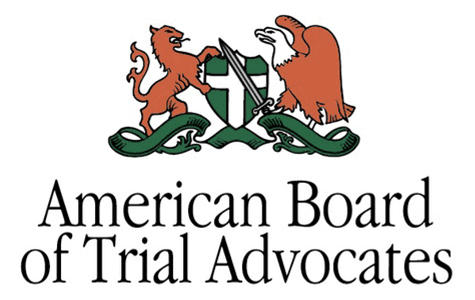Have you or your loved one been involved in an auto accident in Fort Lauderdale? Do you want to make a claim for damages and need guidance from an experienced firm? Look no further than Lytal, Reiter, Ivey, Smith & Fronrath. We are an experienced team of Fort Lauderdale car accident lawyers passionate about helping our clients get the maximum compensation for their accidents.
With over 30 years of experience and over $2.5 billion recovered for clients, you can trust our experience to get you the compensation you deserve. Contact our Fort Lauderdale personal injury attorneys today to receive your risk-free initial consultation and learn how we can help you pursue maximum compensation.
How Can Lytal, Reiter, Ivey, Smith & Fronrath Help You?
Here’s what sets Lytal Reiter apart when dealing with your Boca Raton car accident:
Protecting Your Rights
After an accident, insurance companies often try to downplay your injuries or offer a lowball settlement. We aggressively protect your rights and ensure you receive fair compensation for your medical bills, lost wages, and pain and suffering.
Don’t Pay Unless You Win
We understand the financial burden an accident can create. That’s why we work on a contingency fee basis. You pay nothing upfront, and our fees come only if we win your case.
We Pursue Maximum Compensation
Our team has a proven track record of obtaining maximum compensation for our clients. We understand the full scope of damages you may be entitled to, including medical expenses, lost wages, property damage, pain and suffering, and future medical needs.
“Brian or Andrea kept me informed every step of the way. They never failed to take a call from me and I would recommend Brian Wilson and his excellent staff to anyone needing an attorney.”
-Kimberlee
“Very professional! I was so fortunate to have Atty. Trey Lytal and Mr. Bradshaw helping me. They are very sincere and they kept me updated every step of the way.”
-Jermaine
“Where to begin? I’ve known Trey Lytal III and Robert Bradshaw for 15+ years now. They have both represented me in a couple of my auto cases and even relatives of mine. This law firm is always relentless at helping me out and making sure that I’m well taken care off with any injuries that I have sustained. Really down to earth folks that have treated me like family over the years. Always an absolute pleasure to be legally represented by this law firm. I fully recommend this firm to represent you in any auto case you may need legal representation on. Thank you always for the professional and courteous VIP treatment.”
-Derrik
Why Do I Need a Fort Lauderdale Car Accident Lawyer?
After an accident, you may assume that you can just work with your insurance company and get the compensation you need to get back on your feet. You pay your premiums, right? While this may seem completely logical, the unfortunate truth is that the insurance company is a profit driven business, so it is in their interest to pay out as little as possible. Having a car accident lawyer on your side helps you get the compensation you deserve due to their experience in several factors, like case preparation, negotiation skills, and representation in court.
Case Prep
While it might seem like it’s easy to make a claim, it does require a lot of preparation to ensure your case is watertight. As such, the case prep that goes into your claim must be diligently carried out, with every aspect of your claim backed with evidence. To this end, we typically collect:
- Police reports,
- Eyewitness statements,
- Surveillance and/or dashcam footage,
- Blood alcohol test results,
- Phone usage records,
- Medical bills,
- Maintenance or repair logs for roadways
- Maintenance or repair logs for vehicles,
- Vehicle repair invoices,
- Paystubs and/or salary slips to prove lost income,
- Details on citations and/or suspensions, if any, of the accused driver and
- Expert testimony is needed to validate our use of the damages multiplier.
Aside from working on securing all the necessary documents, we also work with you to ensure you are prepared for the process. Whether you’ll be presenting your case in court or working on negotiating a settlement with the insurance company, we will navigate what many people consider murky water.
Learn More: How Much Money Can You Ask For in a Car Accident Case?
How is Liability Determined in a Car Accident Case?
Proving liability in Fort Lauderdale car accidents requires the plaintiff to prove the following elements:
Duty of Care
Duty of care for drivers revolves around every driver being responsible for the safety of other car users. In other words, every driver should operate their vehicle in a way that does not injure other drivers.
You should gather evidence of the driver with the duty of care at the scene of the accident. The best evidence of duty of care is the police report, which may testify to prove your assertions. Additionally, you can gather eyewitness accounts, photographs, and videos of the accident scene.
Breach of Duty of Care
A breach of duty of care is any form through which an accident occurs. It might be something as simple as a driver being unaware they’re endangering others to reckless and dangerous driving.
There are numerous ways through which drivers neglect their duty of care, including texting and driving, using social media while driving, drunk driving, intoxication, driving while fatigued, driving while distracted, and much more.
You need to prove a breach of duty of care took place in relation to standards of reasonable care. For instance, sending a text right before the accident, making a U-turn where they are illegal, driving while intoxicated, driving in a poorly maintained vehicle, etc. It is reasonable for a driver not to make a U-turn where it’s prohibited or drive while intoxicated.
Why You Should Call Lytal, Reiter, Ivey, Smith & Fronrath for Your Auto Accident Case?
At Lytal Reiter Ivey Smith & Fronrath, we are committed to protecting the rights of auto accident victims in Fort Lauderdale and throughout South Florida. Here’s what sets us apart:
- Experienced and Knowledgeable: Our team has extensive experience handling car accident cases of all types and complexities.
- Proven Track Record: We have a successful history of securing maximum compensation for our clients.
- Personalized Attention: We understand the unique challenges you face after an accident. We will provide personalized attention and guidance throughout the legal process.
- No Recovery, No Fee: This means that you will only pay any attorney fees if we secure compensation for you.
How Much Will a Lawyer Cost?
Many Boca Raton auto accident lawyers, like those at Lytal Reiter Ivey Smith & Fronrath, operate on a contingency fee basis, meaning there are no upfront costs. Their fee is taken as a percentage of the compensation they recover for you, so you don’t owe anything unless your case is successful.
Contact a Fort Lauderdale Car Accident Lawyer
If you’ve been injured in a car accident through no fault of your own, you shouldn’t have to shoulder the burden of medical expenses and other costs. Contact Lytal, Reiter, Ivey, Smith & Fronrath to discuss your case with an experienced West Palm Beach car accident attorney.
We’ll carefully review your situation, answer your questions, and recommend the best path forward. With no upfront fees, you only pay us if we successfully recover compensation for you.












